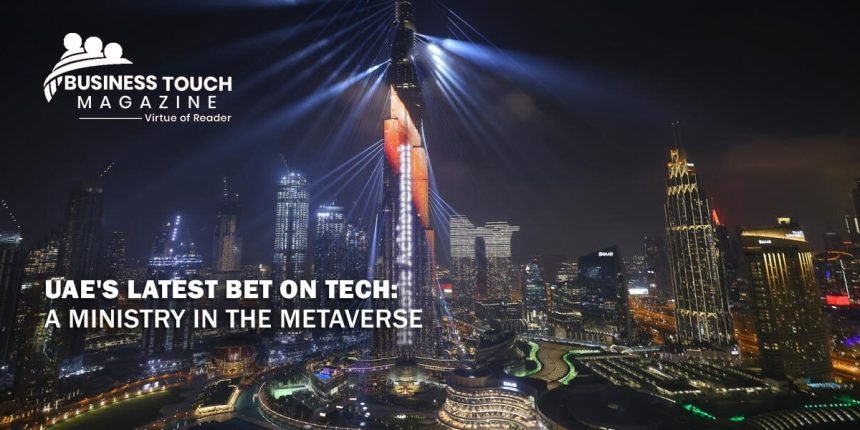The United Arab Emirates, home to the world’s tallest building and an audacious Mars expedition, is looking to make its mark in the virtual frontier.
It was reported that the UAE Ministry of Economy will be establishing a presence in the developing virtual world as part of a project introduced at Dubai’s shiny Museum of the Future.
Those who wear VR headsets or otherwise get access to the interior will discover a ministry that is eager to work with private enterprises and form bilateral agreements with governments across the world, according to ministry representatives.
Although still in the “test” phase, the UAE’s economy minister acknowledged that the metaverse is an online environment where users would ultimately be able to game, work, and learn.
At the first-ever Dubai Metaverse Assembly, which took place in a museum with a novel ring form adorned with Arabic calligraphy on each side of the city’s major highway, Abdulla bin Touq Al Marri delivered the keynote address.
Technological behemoths’ representatives mixed with startups’ and developers’ as they investigated the possibility of the metaverse, a collection of interconnected virtual worlds.
Speaking to AFP, Al Marri said, “With the changes in the (visa) system… we see talent moving in.” “In the past couple of years we’ve seen investments, we’ve seen enterprises come in,”
“We educated our personnel to truly immerse themselves in the metaverse, utilise the metaverse, and interact with the Generation Z that is coming,” he said.
The United Arab Emirates (UAE), home to daring construction like the 830-meter (2,723-foot) Burj Khalifa, is betting $4 billion per year in GDP and 40,000 new employment on the metaverse by 2030.
With the support of relaxed immigration regulations for freelancers, entrepreneurs, and creatives, Dubai hopes to recruit 1,000 enterprises specialising in blockchain and associated technologies in order to become one of the top 10 metaverse economies in the world.
“Covid really accelerated” this tendency, Al Marri said, as the coronavirus epidemic drove more individuals online.
In his words, “we assumed the metaverse is a phase technology” with a possible 10- to 20-year development time. Covid-19 enabled rapid adaptation to the metaverse, and its usage became second nature to us very quickly.
Teleportation to Mars
Unlike Abu Dhabi, the oil-rich capital of the United Arab Emirates, Dubai has shifted its economy away from petroleum, focusing instead on commerce, tourism, real estate, and new Technology.
The United Arab Emirates (UAE) has created cryptocurrency regulation and trading platforms while also embracing big crypto exchanges.
Named after Dubai’s ruler Sheikh Mohammed bin Rashid’s intention to establish a Martian colony in the year2117, 2117 is one of the first private-sector metaverse initiatives in the UAE.
Users of the Metaverse may now board a virtual shuttle transporting colonists to the red planet.
Amin Al Zarouni, creator of the Bedu start-up responsible for the virtual voyage to Mars, stated, “A lot of us won’t live long enough to witness this expedition with our own eyes.”
To paraphrase, “We’ll attempt to recreate this event in the metaverse.”
The metaverse has only been used by a small subset of people up to this point, and even the developers of the platform have predicted that mainstream acceptance is still years away. It’s hard to predict how things will go.
Meta, the company that owns Facebook and other social media heavyweights, cites Analysis Group research showing that the metaverse, should it follow the development trend of mobile Technology, could contribute $360 billion to GDP in the Middle East, North Africa, and Turkey in 10 years.
When questioned about Dubai’s potential to become a metaverse centre, the corporation stated, “We also know that when legislation promotes innovation, it accelerates the adoption of new technology.”
Dubai has a well-defined plan and set of objectives to speed up the spread of the metaverse and the funding of its foundational technologies.




